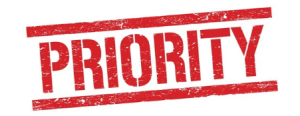Agricultural service providers know which farms have the cleanliest bathrooms. It may not surprise you to find out that some providers choose to avoid certain farms during specific times of day or cut their visits short because of the bathrooms. Does the restroom area really matter? Is there an unspoken but very loud value being proclaimed from the toilets? Maybe you have been frustrated with the lack of care for the facilities and do not know why the employees can’t seem to understand how to bring cleanliness to the forefront of their thinking? Maybe you believe that a clean bathroom is an unachievable feat, just a part of human nature? Do all cultures use the bathroom in the same way?
No! In some Asian cultures, such as in Japan, their bathrooms tend to be some of the cleanliest in the world. Cleanliness is engrained in their culture from birth. The bathroom is a sacred place. They even have a ‘toilet god’ that represents sanitation. In the Japanese culture, they teach children to do their own cleaning (not a cleaning ‘lady’). They teach their children when coming inside to: change shoes into slippers, wash hands, wipe down their desks, and even brush their teeth after lunch. This is part of their day. It is their area to clean. Even public restroom areas compete to have pristine bathrooms. Why? Because people flock and do their shopping where there are clean bathrooms! A clean toilet makes people feel happy, secure and at home.
A clean toilet means there is respect for others on our farm! Bathroom etiquette should be taught along with all the other protocols and onboarding. Here are some tips for improving the culture of the toilets:
 1. Start on day one with the protocols and rules of the bathroom. Even though it seems childish, spend time teaching the expectations of how to use the facilities: how to clean after yourself, where toilet paper goes and where paper towels go, etc. Even explain how to wash hands. Remember that paper towels in Mexico are not common. If you had never used one before, how would you know how many to use? Where do you dispose it? What do you use them for? Plumbing in Mexico uses small pipes. Toilet paper cannot be put into the toilet, or the toilet will become plugged. So, if you don’t want a whole bunch of used toilet paper in the trash, explain to employees where it goes and that the pipes will not become plugged here in the U.S. with toilet paper. But do explain how they could become plugged (paper towels, trash, and other feminine products).
1. Start on day one with the protocols and rules of the bathroom. Even though it seems childish, spend time teaching the expectations of how to use the facilities: how to clean after yourself, where toilet paper goes and where paper towels go, etc. Even explain how to wash hands. Remember that paper towels in Mexico are not common. If you had never used one before, how would you know how many to use? Where do you dispose it? What do you use them for? Plumbing in Mexico uses small pipes. Toilet paper cannot be put into the toilet, or the toilet will become plugged. So, if you don’t want a whole bunch of used toilet paper in the trash, explain to employees where it goes and that the pipes will not become plugged here in the U.S. with toilet paper. But do explain how they could become plugged (paper towels, trash, and other feminine products).
 2. Teach to leave things better than they are found. In order for this to work, everything must have a place. If the soap runs out, where does an employee find another bar? Do you have a place for the trash to go? Is it labeled? Benjamin Franklin wrote “A place for everything, everything in its place.”
2. Teach to leave things better than they are found. In order for this to work, everything must have a place. If the soap runs out, where does an employee find another bar? Do you have a place for the trash to go? Is it labeled? Benjamin Franklin wrote “A place for everything, everything in its place.”
 3. Tidiness is part of cleanliness. Is your bathroom area also a storage area, a dumping spot for extra products? This encourages disorder and disrespect. An area that is respected is also valued and maintained tidy. Keep your bathrooms free from disorder.
3. Tidiness is part of cleanliness. Is your bathroom area also a storage area, a dumping spot for extra products? This encourages disorder and disrespect. An area that is respected is also valued and maintained tidy. Keep your bathrooms free from disorder.
 4. Talk about the unspeakable. Don’t let this topic be off limits. We create culture wherever we go. We add value to things we enjoy and like and we disapprove of habits that we feel don’t represent us. Celebrate the cleanliness. Have a competition between facilities or between work shifts. Encourage staff by asking for ideas on how to make the bathrooms their own.
4. Talk about the unspeakable. Don’t let this topic be off limits. We create culture wherever we go. We add value to things we enjoy and like and we disapprove of habits that we feel don’t represent us. Celebrate the cleanliness. Have a competition between facilities or between work shifts. Encourage staff by asking for ideas on how to make the bathrooms their own.

5. Assign and rotate responsibilities. If everyone cleans a part of the bathroom, everyone gets to experience the results of a respected vs disrespected bathroom. Do not leave the bathroom for someone else who doesn’t even use the facilities to come in just to clean up once a week. How terrible for that person!
Culture is made up of what we celebrate and what we tolerate. What is your farm celebrating and tolerating… in the restrooms?
_______________________________________________________________________
By Mary Lewis, Cornell University. Permission granted to repost, quote, and reprint with author attribution.
The post Culture Starts in the Toilet! appeared in The Ag Workforce Journal.


